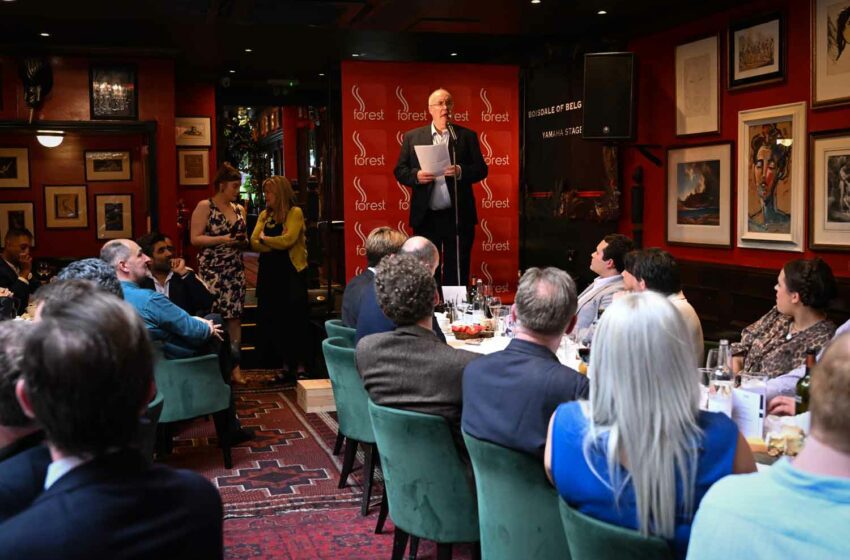(Photos: Stuart Mitchell)
“You couldn’t make it up.” That was how Simon Clark, the director of the Freedom Organization for the Right to Enjoy Smoking Tobacco (Forest), summed up the way in which the U.K. government had, in October last year, renegued on earlier assurances and announced a generational ban on tobacco sales.
Clark was speaking as co-host of a Beat the Ban lunch held at the Boisdale Restaurant in London on May 21. The proposed ban, currently being pushed through parliament, would make it illegal in the U.K. to sell tobacco products to anyone born on or after Jan. 1, 2009.
Clark pointed out that this would mean a person of a certain age would be able to buy tobacco while another person, one year, or, in some cases, just one day younger, would not be able to do so legally. Eventually, a person 70 years of age would not be able to buy tobacco legally.
Forest is opposed to the proposed ban for several reasons, but mainly because it believes the ban would infantilize young adults and increasingly older adults, driving some of them towards the black market and criminal gangs, while doing nothing to stop sales of tobacco products to children, which are already illegal.
What was extraordinary, Clark said, was that while, in April 2023, the government had made it clear it did not intend to raise the minimum age for the sale of tobacco, in October, the prime minister, Rishi Sunak, announced plans for the generational ban.
“In our view, the Tobacco and Vapes Bill is a desperate attempt by a desperate prime minister to leave a legacy—any legacy—however unconservative, before the next general election [due to be held this year or, at the latest, January 2025],” said Clark.
Clark was scathing, too, about the way the bill is being “steamrollered” through parliament. Following a short public consultation before Christmas, the government had announced it would not consider any submissions from groups with links to the tobacco industry, which, for instance, included Forest and even retailers. “To the best of my knowledge, that has never happened before,” he added.
After its second reading, the bill entered its committee stage, when 17 MPs were appointed to the Committee, 16 of whom had voted for the bill and the other of whom was known to support it. And when it came to inviting people to give oral evidence to the Committee, witnesses were almost exclusively supporters of the bill.
“Not only has the process been absolutely scandalous, the bill as it stands is illiberal, unenforceable, and has significant unintended consequences,” said Clark. “It will drive the legitimate sale of cigarettes and tobacco underground,” he added, before calling on those so minded to write to their MPs in protest,
Clark’s co-host, Ranald Macdonald, the founder and MD of the Boisdale restaurants, was unable to attend the lunch but sent a message of support along with a special pleading for the smokers of fine cigars.
And the 60 lunch guests, who included MPs, parliamentary researchers, think tank staff, retailers, tobacco industry representatives and journalists, heard from a string of speakers representing or simply speaking up for retailers, young adults and a variety of tobacco products, including pipe tobacco and snuff that will also be covered by the bill should it go through. —George Gay
Editors’s note:
Hours after this story had been submitted, U.K. Prime Minister Rishi Sunak announced that a general election would be held on July 4, meaning that parliament was due to be dissolved on May 30 and leaving too little time for the tobacco and vapes bill to complete its passage through parliament. This is unlikely to be the end of the matter, however, because the policy underpinning the bill had cross-party support and could well arise like the phoenix in the future.


